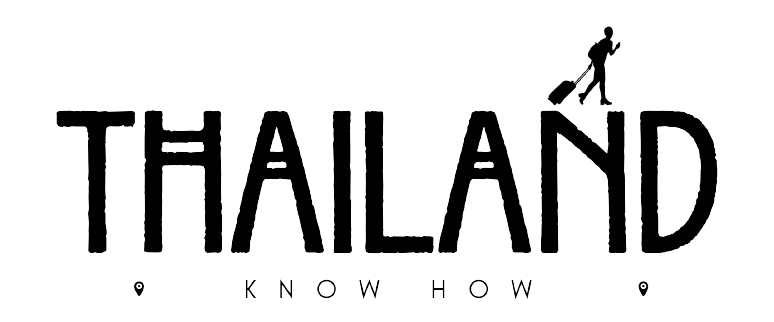Explore how to secure Thailand work visa sponsorship with ease. Get expert guidance on requirements and the application process.
In a bustling economy teeming with opportunity, an astonishing 80% of companies in Thailand report challenges in filling job vacancies due to skill shortages. For the international job seeker, this statistic offers not just an insight into the thriving Thai job market but also underscores the significance of the work visa requirements Thailand imposes. Navigating the Thailand work visa sponsorship and permit landscape is critical to tapping into this dynamic employment sphere.
Beginning the work visa process in Thailand necessitates a comprehensive understanding of the myriad sponsored visa jobs in Thailand. Securing a work permit is indeed non-negotiable; this crucial document is what legitimizes your prospective role within a Thai company. Those considering employment should anticipate aligning their visa application to the appropriate category—specifically the non-immigrant visa—well before touching down on Thai soil. Since any form of work without a legitimate work permit is strictly off-limits, it’s imperative to grasp the Thailand work permit application specifics with meticulous attention to detail.
Foreigners must be primed and ready: the holistic application process lasting approximately 7 business days at the Ministry of Labor’s office, expressly states that one can only fill the position and engage with the employer outlined within the work permit. Suffice to say, getting ahead in the Land of Smiles starts with mastering the prerequisites for Thailand work visa sponsorship.
Key Takeaways
- An overarching demand for skilled professionals in Thailand’s job market.
- Essential need for a non-immigrant visa pre-arrival.
- Requirement for a formal work permit to legally work in Thailand.
- Understanding the job-exclusive nature of the Thai work permit.
- Preparation for a detailed 7-business-day application process.
Understanding Thailand Work Visa Sponsorship
Securing an employment visa in Thailand is critical for any expatriate seeking to work legally in the vibrant country. The core of this process is the Thailand work visa for expats which lays the foundation for subsequent work sponsorship. To illuminate the visa sponsorship route, it is essential for foreign nationals to recognize the interdependence between the visa obtained and the work permit that follows.
Initially, a non-immigrant visa is a requirement before one considers work permit sponsorship. This visa acts as the gateway, enabling the foreign worker to stand on the right side of Thai immigration law. Next, the onus partially shifts to the employer, who must be prepared to back the foreign national’s application with necessary paperwork and commitments. Only specific jobs qualify for work sponsorship in Thailand, as some are reserved solely for Thai nationals.
What’s important for applicants to bear in mind is a stringent regulation: possessing a work permit is not merely for legal compliance—it must be on their person during all working hours. This document dictates the specifics of the employment—they can only engage in the job role and with the employer stated.
Understanding the framework is the first step to obtaining a Thailand foreign worker visa successfully. Meticulous adherence to legal requirements is mandatory throughout the tenure of your professional endeavor in Thailand.
A comparison of visa sponsorship prerequisites is outlined in the table below:
| Visa Type | Prerequisites | Document Requirements from Employer | Work Restriction Notes |
|---|---|---|---|
| Non-immigrant Visa | Pre-application before entry into Thailand | Company sponsorship documentation | Must comply with non-competitive clauses |
| Work Permit | Non-immigrant Visa holder | Certification of Business Registration and size | Role must be explicitly outlined and employer specified |
| Employment Visa | Work Permit approval | Evidence of financial and operational company compliance | Permit must be conveyed at all times during work hours |
Comprehensive understanding and active management of these components are quintessential in acquiring and upholding a Thailand foreign worker visa. Hence, both expatriates and their potential employers are advised to approach the work visa acquisition process with informed diligence and foresight.
Exploring Thailand’s Non-Immigrant Visa Categories
Embarking on a professional journey in Thailand demands navigating its comprehensive visa framework, which offers a selection of non-immigrant visa types each tailored to specific professional contexts and requirements. In this section, we delve into the varied categories of non-immigrant visas designed for professionals, investors, and media personnel, outlining principal contours and requirements that enable international workers to take up employment in Thailand.
Non-Immigrant Category B Visa for Professionals
The Non-Immigrant Category B visa stands as the cornerstone for professionals seeking to engage in employment within Thailand’s diverse industries. Essential for educators, corporate employees, and professionals, the Category B visa fortifies the legal framework necessary for work in Thailand. When considering this path, it’s key to understand the Thai work permit requirements which are inextricably linked to the visa process. Eligibility hinges on a variety of profession-specific stipulations.
Specialized Visas: Non-immigrant IB, B-A, O, and M
Beyond the primary Category B visa, Thailand offers a spectrum of specialized visas like the Non-immigrant IB, B-A, O, and M visa classes. Catering to niches such as foreign investment (IB), business administration (B-A), dependents of Thai residents (O), and media professionals (M), these visas address distinct economic and social contributions to the Kingdom. The intricacies of the Thailand work visa requirements vary among these categories, reflecting the specific purposes they serve.
New Long-Term Residence Visas for Skilled Professionals
Anticipating the future of professional migration, Thailand is set to introduce an innovative visa category tailored for highly skilled professionals and affluent global citizens in September 2022. This long-term residency visa is a testament to the country’s recognition of the value of skilled foreign professionals. Candidates will need to exhibit not only exceptional qualifications and experience but also the economic capacity to thrive in Thailand. The eligibility for this visa will assess an applicant’s professional expertise, earnings, and an alignment with the thai business visa framework, potentially creating an avenue for sustained growth and contribution to the Thai economy.

Thailand Work Visa for Expats: The Employer’s Part
When it comes to obtaining Thailand work visas for international talent, employers hold the reins. Key elements such as financial standing and legal registration form the cornerstone of sponsorship for working in Thailand. To meet the specifics of Thailand employment visa categories, a comprehensive dossier of credentials and documents are to be meticulously compiled by sponsoring firms.
Capital Requirements and Company Registration
Before diving into the intricacies of sponsored employment in Thailand, it is essential for companies to establish their eligibility through financial capital verification and ensuring proper registration within Thai jurisdiction. These are essential corroborators that signify the credibility and stability of a business entity aspiring to hire foreign professionals.
Document Checklist for Sponsoring Companies
A well-prepared documentation assemblage propels the process of securing Thailand work permit sponsorship. Each document plays a pivotal role in outlining the company’s operational scope, fiscal compliance, and adherence to labor laws, thereby safeguarding both the employer’s and prospective employee’s interests.

| Document Type | Purpose | Required by All | Additional Notes |
|---|---|---|---|
| Company Registration Certificate | Verifies legal entity status | Yes | – |
| Tax ID Card | Taxation identification | Yes | – |
| Value-Added Tax (VAT) Certificate | Evidence of VAT registration | If applicable | Only for eligible companies |
| Financial Statements | Proof of financial stability | Yes | Must be recent and audited if required |
| Employment Contracts | Details terms of expat employment | Yes | Must match work permit details |
BOI Promotion and Exceptions
Highlighting the allure of Thailand as a hub for global talent, the Board of Investment (BOI) offers attractive incentives and exceptions to standard regulatory restraints. Companies that qualify under BOI schemes may experience a more streamlined process and less stringent requirements, demonstrating Thailand’s commitment to fostering a diverse and competitive workforce.
By embracing these directives and preparing the necessary groundwork, employers can effectively champion their cause for sponsoring global talent, culminating in mutually beneficial professional engagements within Thailand’s vibrant economic landscape.
Thailand Work Permit Application: A Step-by-Step Guide
Embarking on the Thailand work permit process is an essential step for any foreign worker in Thailand. The procedure unfolds with lodging an application to the Ministry of Labor, which, if you are employed by a company promoted by the Board of Investment (BOI), may instead be submitted at the One-Stop Service Center. This meticulous filing demands a careful compilation of corporate, personal, and health documents that verify your suitability and readiness to enter Thailand’s workforce.
Key ingredients in your Thailand work visa application include a passport-sized photo, your educational certificates, and, if relevant, marriage documents affirming kinship to a Thai citizen. These, meshed with your prospective employer’s registration details and other mandatory forms, constitute the essential packet for consideration. Should this packet meet the established criteria, the processing time can be incredibly efficient, often concluding within just seven days. This alacrity ensures that qualified applicants can promptly attain legal employment status, paving the way to launch their career in Thailand.
For those seeking a Thailand work visa for foreigners, securing a work permit signals the final, pivotal stride in formalizing your professional engagements. It’s a tangible license to not just work, but also to immerse in the cultural and economic dynamism that Thailand offers. Embrace the Thai work landscape with confidence, knowing that every requisite step has been carefully observed in your venture towards a rewarding career in this vibrant Southeast Asian hub.
FAQ
What are the primary requirements for Thailand work visa sponsorship?
To be sponsored for a work visa in Thailand, you must obtain a non-immigrant visa, have a prospective employer who can provide the necessary documents, and ensure your intended profession is not prohibited to foreigners. Your employer will need to demonstrate the financial capability, company registration, and adherence to the work visa requirements in Thailand.
Can you work in Thailand without a work permit?
No, it is illegal to work in Thailand without a valid work permit, regardless of the type of visa you hold. Engaging in any form of work without a sanctioned work permit can result in legal penalties.
What is the process to apply for a work visa in Thailand?
The process involves securing a non-immigrant visa, finding a job with an employer who can sponsor your work permit, and submitting the required documents to the Ministry of Labor or the One-Stop Service Center for BOI-promoted companies. The processing time is typically about 7 business days.
What roles do employers play in the work visa process for expatriates in Thailand?
Employers are responsible for providing the necessary documentation during the work visa application process, which includes proof of company registration, corporate financial statements, tax compliance certifications, and a detailed employment contract. They also ensure they meet the capital requirements and register for the company sponsorship.
How long is the processing time for a Thailand work permit?
The processing time for a Thailand work permit after submitting all necessary documents is roughly 7 business days. Delays may occur if additional information or documentation is required by the Ministry of Labor.
Are there any specific visa categories that are suitable for professionals looking to work in Thailand?
Yes, the Non-Immigrant Category B Visa is specifically designed for professionals looking to work in Thailand, such as educators and business employees. There are also specialized visas like Non-immigrant IB, B-A, O, and M for investors, business executives, dependents, and media professionals.
What new visa categories have been introduced for skilled professionals in Thailand?
Thailand has introduced new long-term residency visas aimed at affluent global citizens and highly skilled professionals. These visas are catered to individuals who can demonstrate substantial professional expertise, experience, and earnings. They include benefits for those with high educational qualifications or employment with the Thai government.
What documentation is required from sponsoring companies in Thailand?
Sponsoring companies must provide a comprehensive set of documents such as company registration, tax filings, proof of capital, social security contributions, an employee quota compliance certification, and specific details of the employment contract as part of the visa sponsorship process.
Are there exemptions available for companies under the Board of Investment (BOI) promotion when hiring foreign workers?
Yes, companies that qualify for BOI promotion enjoy certain relaxations in the labor laws, such as deviations from the standard ratio of Thai to foreign employees. These exemptions aim to attract and facilitate foreign investment and expertise in Thailand.
What is required to maintain legal foreign employment status in Thailand?
To maintain legal foreign employment status, you must have a valid work permit, abide by the job description and employer details specified in the permit, ensure your non-immigrant visa remains valid, and carry your work permit with you, especially during working hours.






Leave a reply